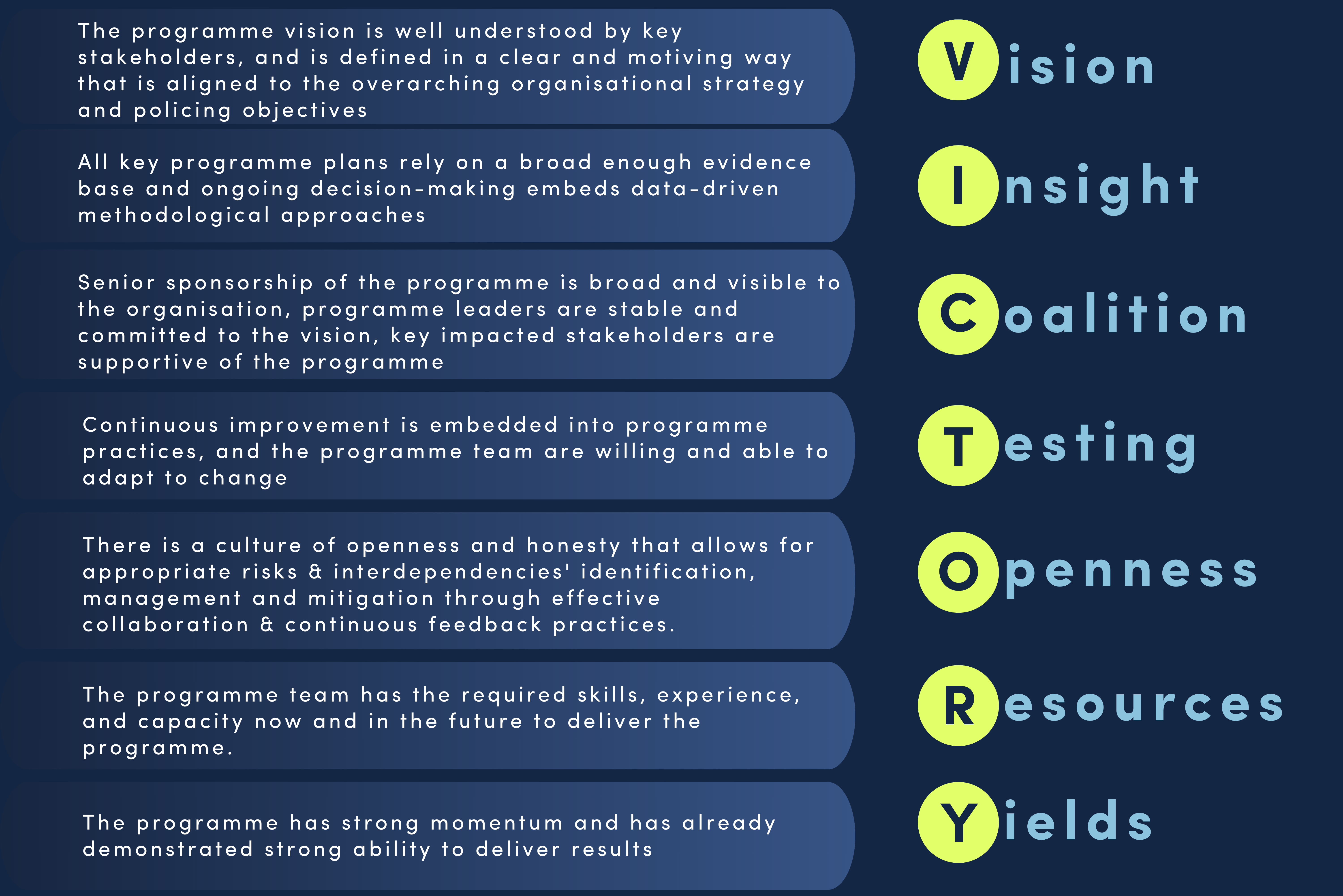Making big changes in the public sector is hard. One only has to look at the Infrastructure and Projects Authority’s (IPA) assessment (1) of the biggest government projects to spot this. According to their latest annual report (2022-2023), only 10% of projects are ‘green’ (meaning “Successful delivery of the project on time, budget and quality appears highly likely”), 74% are rated amber and 12% red (“Successful delivery of the project appears to be unachievable”).
As public sector organisations try to improve quality of services with limited funds, programmes are becoming increasingly ambitious and more prone to failure. However, failure is not inevitable. From our work across 100s of major change programmes, systematic review of NAO, Institute for Government and IPA literature, and familiarity with the full range of change management frameworks, however, we now understand what drives successful transformation programmes in public sector organisations. And, drawing on this work, we have developed Leapwise’s VICTORY Framework © for major change.
The VICTORY framework allows those responsible for or involved in public sector programmes to holistically assess programme health and provides readily actionable recommendations to ensure successful delivery. Our framework is based around seven critical areas identified and tested through our research and work:
The framework is simple, and it is easy to use the core concepts to quickly evaluate programmes you are overseeing or working with. For those needing more robust assessment, we’ve also underpinned it with a robust methodology for assessing likelihood of programme success. This includes a set of 104 indicators which we select from to measure success odds (the measures that are most relevant depends on the programme type and stage of maturity). Insight is gathered through a mixture of document review techniques, survey questions, interviews, meeting observations, expert assessments and workshops – and we have now developed ways to develop insight and recommendations quickly. Our ways of assessing and accelerating programme success are highly collaborative (working with the programme team rather than against them!) but we can now develop robust, independent programme assessment and recommendations to improve success odds in just four weeks.
There are many things we’ve learned from developing and applying the framework in different contexts and we’ll write more on this soon based on the data we’re gathering. But if we were to pick a ‘top 3’ lessons today, they would be:
- Major Change programmes often lack an effective design to succeed from their very inception, but teams very often feel unable to challenge early design decisions that prove mistaken, or critical resourcing and skills issues. By operating within pre-designed programme structures, internal stage reviews among the programme team often reflect what is already known with few honest conversations or meaningful resolutions;
- Meetings and governance around programmes are heavily focused on process, and often overlook wider cultural or behavioural barriers to success
- Positive bias and rationalization among the programme team may prevent effectively addressing perceived challenges even when these are well identified and understood – for example, if there is a fear of challenging the status quo.
We have now applied our framework in several programme review and acceleration projects (2) and we’re really pleased that our support has always been seen as both effective and collaborative:
“Leapwise worked alongside the programme team to achieve a clear line of sight between programme objectives and activity. What worked particularly well was the flexible and embedded approach that Leapwise took, adapting their focus to meet an evolving brief. I would look forward to working with Leapwise again.”
– Jim Barton, Executive Director, HMPPS Change
“The work carried out by Leapwise in partnership with TVP has allowed us to make sound financial decisions that have paved the way for our enabling services review and wider transformation programme. The team made things simple yet effective, working to tight timescales and considering the bespoke needs of the organisation, recognising that one size doesn’t fit all…. I am grateful for the work they have done and the quality of the products delivered.”
– ACC Dennis Murray, Force Restructure Programme Senior Responsible Owner
Get in touch with our team to discover more on how our programme stock-takes and acceleration support have helped public sector programmes to deliver results.


